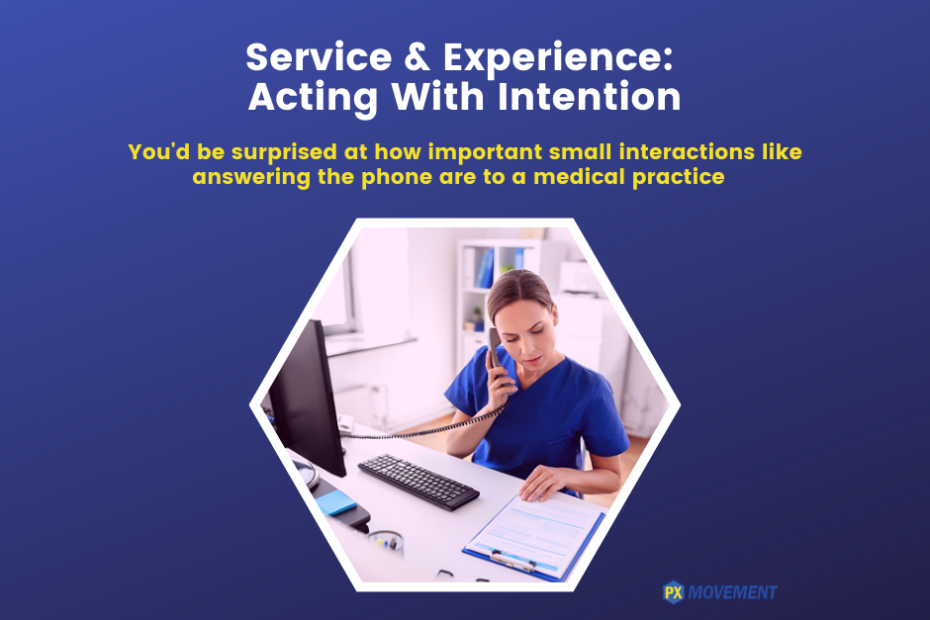“Once Again, With Feeling!”
Service vs. Experience
Many people confuse service with experience. A simple illustration can be found in how two medical practices I called this past week answered the telephone:
- Practice A: “Doctor’s office” (followed by silence)
- Practice B: “Good morning, thank you for calling Doctor Rossman’s office. This is Julie. How may I help you?”
Both practices performed the function of identifying that I had dialed the number correctly and reached the doctor’s office I needed to speak with. That’s the service part of the equation.
Practice B went much further by using a warm tone along with an inviting question that says “we are here for you” (emphasis mine). That’s the experience part of the equation.
Service Efficiency & Effectiveness
In modern society, service has become commoditized. We want it to be fast, cheap, and efficient. Experience is more highly valued because it is personalized and far more effective in capturing the heart and mind of the customer.
In the medical practice, you have a balancing act between efficiency and effectiveness. I’d argue that Practice B, while less efficient, is far more effective. It does take more time to say those extra words and to do so with feeling.
I cannot stress enough how important this basic act of answering the telephone has become in our lives. These past few weeks, I’ve been helping a friend through a serious medical episode, essentially serving in the role of caregiver. Trying to navigate our health system is a daunting task for the caregiver as well as the patient.
What I’ve learned is how these little interactions that take place en route to meeting or speaking with a physician have a tremendous impact on the psyche and motivation of the caregiver as well as the patient. Regardless of the type or size of practice, you owe it to yourself as well as your patients to pay close attention to how well you are performing these “soft skills” that complement your clinical approach.
Call Your Practice
One of the insights in my book is titled “Director of First Impressions,” a title that describes the actual role of those you have assigned to the front desk. In reality, that title applies equally – if not more so – to those you have answering the telephone.
I challenge you to call your own practice, preferably from a telephone that’s not yours (to avoid being recognized by caller ID). See what it’s like when you call as if you were a patient. Is your team member acting with the intention that you want them to convey? Once the phone was picked up, did you feel welcomed and valued when you heard those first few words? If so, let your team know!
If not, congratulations! You have identified an area of improvement that can be remedied immediately with feedback and coaching. Or, if needed, replacement with a person who can and will represent your practice the way you intended.

